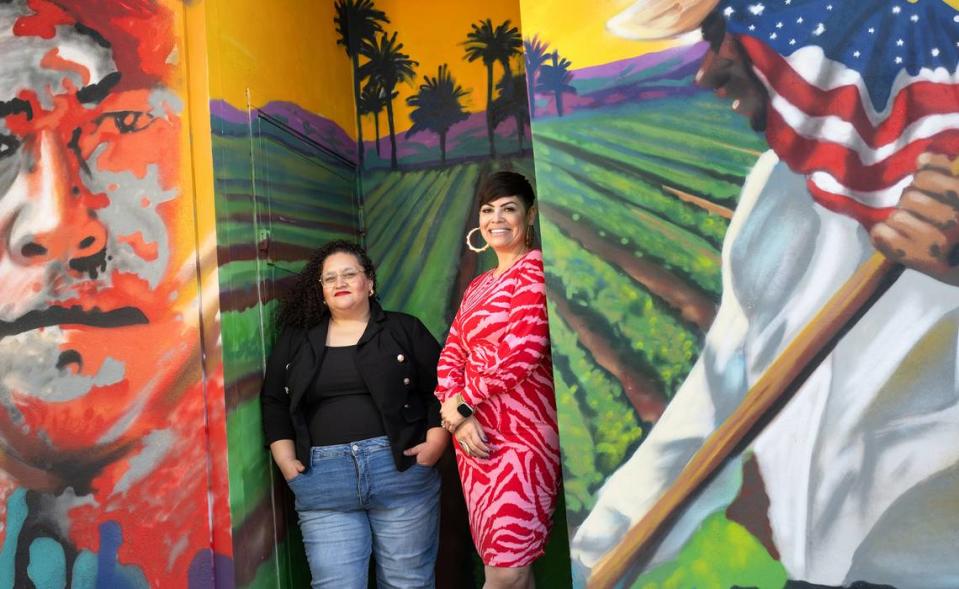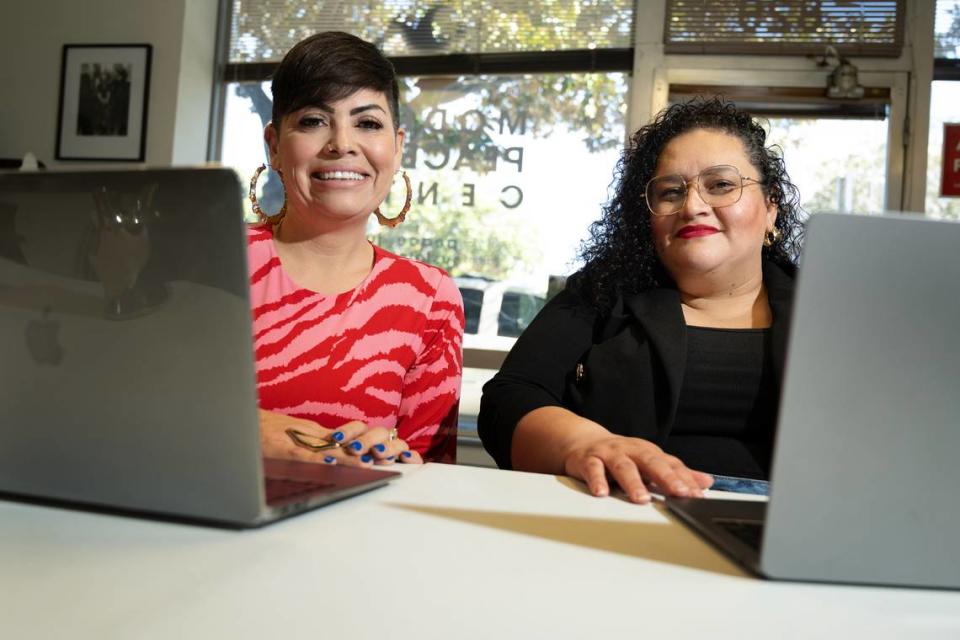Modesto-based organization aims to bring more tech opportunities to underrepresented communities
As one of the few women of color in the computer science industry, Bernadette Davoud doesn’t see her gender as a disadvantage.
When her male colleagues at her internship ask her to prettify their team projects, she takes it as a compliment because they’re able to recognize her strengths and value her female perspective.
“As intimidating as it is, it is powerful as well. Being the only woman, I think, has so much power,” Davoud, 27, said.
She has been collaborating with yüda, an organization dedicated to granting equitable tech access to marginalized communities, particularly women of color, in the Central Valley. The name yüda derives from the word “ayüda,” which means “help” in Spanish.
The group was founded in January by Daisy Mayorga and Karlha Arias, both based in Modesto.
“We are trying to represent the communities we are serving. Representation is a big part in trying to close that gap and showing more women being in these areas,” Mayorga said.
Mayorga, a computer scientist, recalls being advised by a school counselor to pursue a less challenging field. Despite initially veering away from computer science, she ultimately rediscovered her passion for it and aims to inspire other women to persevere in the field. She is currently an ambassador of Women Techmakers Modesto, where she also works to create opportunities for overlooked communities in technology.
Karlha Arias, with a marketing background, shares Mayorga’s aspiration to merge technology with social justice to uplift underrepresented communities. Arias is also the founder of Korazón.io Konsultants, a marketing and community organization.
Their paths crossed through Google’s Women Techmakers program when Mayorga sought Arias’s marketing expertise for an event. In 2022, Mayorga asked her if she would like to be a co-founder for yüda since they both shared similar visions of helping people from similar backgrounds as them.
Yüda conducts workshops and organizes events aimed at educating the community on emerging technologies and addressing questions on subjects like artificial intelligence. It also has partnered with various organizations, including the West Modesto Community Collaborative, to provide training and distribute free vouchers for Google Career Certificates.
In an upcoming event, yüda plans to invite a Latina from NASA to inspire more women of color to envision themselves thriving in traditionally male-dominated fields. The organization also tries to bring Spanish speakers to connect with that community.
In Stanislaus County, only 4% of K-12 students are enrolled in computer science courses. Women make up only one quarter of that percentage, according to data from 2018.
“Most likely, it hasn’t gotten any better,” said Rudy Escobar, STEM and computer science coordinator at the Stanislaus County Office of Education (SCOE).
Escobar has been involved with yüda at events, giving basic computer science lessons, aspiring for the organization to empower more women to enter the tech sphere.
“Everybody needs to have a voice and be represented,” he said.
Sanjay Bhan, the CTE coordinator at SCOE, said the Central Valley isn’t known for tech compared to regions like the Bay Area. But he emphasized the abundance of opportunities in the area, particularly in intersections with other industries such as agriculture.
Bhan stressed the significance of introducing these opportunities to students at a young age. He also commended yüda for its effort in promoting women in technology, particularly Latinas, to show there is space for them in these careers.
Lack of representation in the tech space
Theresa Gonzales, founder and host of the podcast “Latinas: from the Block to the Boardroom,” said her first time seeing a woman running a tech company was very eye opening.
“If you can see somebody in that position or in that leadership role in an industry that you find really interesting, that gives you that kind of motivation,” Gonzales said.
Originally from Fresno, Gonzales is glad to see yüda’s efforts to bring additional tech opportunities to the Central Valley. She anticipates that this initiative will shine a spotlight on numerous women of color, particularly Latinas, encouraging their involvement in the technology ecosystem, where representation has been lacking.
When Davoud was a student, she often was the only woman in her class. She had moved to Modesto from Iran about seven years ago and attended Modesto Junior College before transferring to San Jose State University.
She likes to tell people that there was a time when she didn’t know English, because it will encourage other people that they can do it like her.
“We are the documentation for other people,” she said, alluding to software documentation that provides users with instructions for the program.
Yüda can be contacted through their website.



